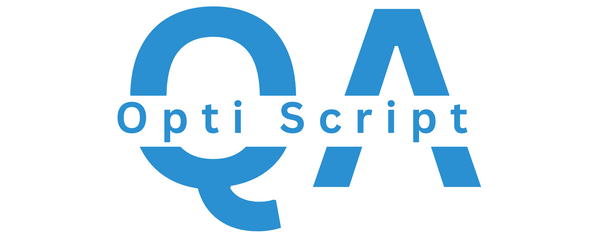As the digital landscape continues to evolve, so do the tools we use to ensure the quality and reliability of software applications. In this post, we'll delve into five of the most popular testing tools of 2025, each designed to streamline the testing process and enhance software quality. Whether you're a seasoned tester or just dipping your toes into the world of quality assurance, these tools are must-haves in your arsenal.
1. Selenium:
Selenium is an open-source automation testing framework used for web application testing across different browsers and platforms.
- Pros: Selenium allows testers to write test scripts in various programming languages such as Java, Python, and C#, offers robust support for parallel testing, and integrates seamlessly with other testing frameworks.
- Cons: Setting up Selenium tests can be time-consuming, especially for beginners, and maintaining test scripts can become complex as the size of the test suite grows.
2. Appium:
Appium is an open-source automation tool specifically designed for mobile applications, supporting both Android and iOS platforms.
- Pros: Appium enables testers to write tests using their preferred programming languages, offers cross-platform testing capabilities, and supports both native and hybrid mobile apps.
- Cons: Configuring Appium can be challenging due to its dependencies on platform-specific tools and libraries, and setting up the testing environment for different mobile devices can be cumbersome.
3. Postman:
Postman is a popular collaboration platform for API development that includes robust testing capabilities.
- Pros: Postman provides a user-friendly interface for creating and executing API tests, supports both manual and automated testing workflows, and offers advanced features such as environment variables and collections.
- Cons: Postman's automation capabilities are not as extensive as dedicated automation testing frameworks like Selenium, and managing large collections of API tests can become cumbersome without proper organization.
4. Katalon Studio:
Katalon Studio is an all-in-one automation testing solution that supports web, API, mobile, and desktop application testing.
- Pros: Katalon Studio offers a user-friendly interface with built-in keywords for test automation, supports both scriptless and scripting approaches to test creation, and integrates seamlessly with popular CI/CD tools.
- Cons: The free version of Katalon Studio has limitations on certain features and requires a paid subscription for full access, and the learning curve for advanced features can be steep for beginners.
5. TestProject:
TestProject is a free end-to-end test automation platform that combines codeless automation, AI-powered test automation, and community-driven features.
- Pros: TestProject provides a user-friendly interface for creating and executing automated tests without writing code, offers a rich library of built-in test actions and integrations, and encourages collaboration through its community-driven approach.
- Cons: TestProject's reliance on a cloud-based infrastructure may raise concerns about data security and privacy, and some advanced testing features may require a premium subscription.
The importance of software testing in ensuring the quality, reliability, and security of applications cannot be overstated. By leveraging the right testing tools and techniques, organisations can identify and address defects early in the development lifecycle, ultimately saving time and resources while delivering superior software products to end-users.
Looking to streamline your testing process further? OptiScript QA offers comprehensive automation testing services tailored to your specific needs. From test scripting and execution, to automation framework development and reporting, our experienced team is here to ensure your software meets the highest standards of quality and performance. Contact us today to learn more!

